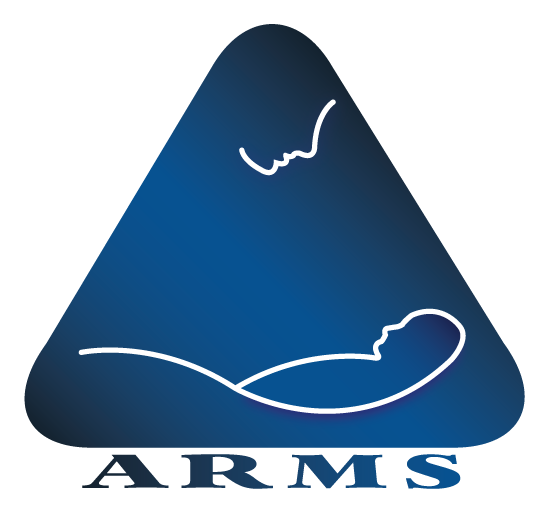Diminished ovarian reserve at a glance
- Women are born with a finite number of eggs, known as their ovarian reserve.
- This reserve naturally decreases with age, from 1-2 million eggs at birth to about 25,000 by age 37.
- Diminished ovarian reserve (DOR) occurs when the number or quality of eggs is lower than normal for a woman’s age, decreasing reproductive potential.
- Low egg quality and quantity can make pregnancy difficult or cause female infertility.
- Causes of diminished ovarian reserve include fewer eggs at birth or accelerated egg loss due to genetic factors, egg damage or autoimmune diseases affecting the ovaries.
- We assess ovarian reserve to estimate a woman’s fertility potential and the likelihood of success with fertility treatments like in vitro fertilization (IVF).
- ARMS also offers an at-home ovarian reserve test kit that can help patients assess their next steps from the results.

Why Choose ARMS
ARMS fertility experts understand the impact that DOR can have on a woman’s ability to conceive. Request an appointment to discuss DOR testing options.
What is diminished ovarian reserve?
Diminished ovarian reserve (DOR), or low ovarian reserve, is a condition where the number or quality of a woman’s eggs is lower than expected for her age. This reduction in ovarian reserve can decrease a woman’s reproductive potential, making it more difficult to conceive naturally and possibly resulting in infertility. Although the decline in egg quality and number is unavoidable, it happens at different times and rates for individuals.
The natural biological clock
During the menstrual cycle, several eggs start to mature in the ovaries, but usually only one egg is released. The rest of the eggs simply break down and disappear in a process called atresia. This happens regardless of whether a woman has regular periods, takes birth control pills, gets pregnant or gives birth. Most of a woman’s eggs will naturally fade away over time. This process of decreasing eggs if often referred to as the “biological clock.”
Moreover, as a woman ages, the ratio of poor quality eggs to good quality eggs increases. This means an increased chance of pregnancy failure. The availability of good eggs for fertilization is an essential process of female fertility. DOR, with either fewer eggs or eggs of poor quality, makes conception difficult or results in female infertility.
DOR vs. premature ovarian failure (POF)
Premature ovarian failure, or primary ovarian insufficiency, occurs when the ovaries stop functioning normally before age 40, leading to irregular periods, low estrogen and infertility. Unlike diminished ovarian reserve, which involves a gradual decline in egg quantity and quality with age, POF involves an abrupt loss of ovarian function and more pronounced hormonal imbalances.
Causes of low ovarian reserve
As a woman gets older, her eggs and the cells around them become damaged, which is a key sign of diminished ovarian reserve, along with having fewer eggs overall. Factors contributing to this include a lower initial number of eggs at birth, accelerated egg loss, egg damage and age. Other causes include:
- Genetic abnormalities such as Fragile X syndrome and other X chromosome abnormalities.
- Ovarian surgery, such as for endometriosis.
- Smoking.
- Family history of early menopause.
- Aggressive medical treatments, such as radiation and/or chemotherapy to treat cancer.
- Pelvic infections.
Many women may not experience noticeable symptoms until they try to conceive. Problems getting pregnant are one sign, and some women with DOR have shorter menstrual cycles.
Freezing eggs as an option for DOR
Fertility preservation through egg freezing is a proactive option for women who are concerned they are affected by DOR. It involves stimulating increased egg development, retrieving eggs and freezing them for future use through IVF.
Freezing eggs at an early age can be a hedge against DOR in the future. Women who suspect they have low egg quality, either because they have one of the causes listed above or have information from at-home ovarian reserve testing or the tests we conduct at our practice listed below, may want to consider egg freezing.
Importance of ovarian reserve testing
Testing helps predict a woman’s chances of conceiving naturally or with fertility treatments such as IVF. Results guide decisions about the timing of pregnancy and whether fertility preservation techniques are advisable, such as freezing eggs or embryos when they are younger and more healthy for a later pregnancy. Beyond predicting fertility, ovarian reserve testing can also reveal underlying conditions affecting ovarian function, such as PCOS (polycystic ovary syndrome) or POF.
AMH Anti-Mullerian Hormone at home test
ARMS recommends the at-home IHDLab Anti-Mullerian Hormone Test to help evaluate a woman’s ovarian reserve, as the anti mullerian hormone (AMH) is a marker for ovarian reserve.
At ARMS we offer a variety of ovarian reserve test options, which will depend on what we learn about the woman from discussion as well as examination. Hormone tests, including anti mullerian hormone (AMH) and follicle-stimulating hormone (FSH), measure the levels of these hormones to evaluate egg quantity and ovarian function (but not ultimate pregnancy success). An ultrasound can assess the number of antral follicles in the ovaries, which indicates the remaining egg supply.
These assessments aim to gauge the quantity and quality of remaining eggs.
Diminished ovarian reserve treatment
DOR cannot be slowed or prevented. But women with diminished ovarian reserve can still get pregnant with assisted reproductive technologies. These include the following.
Donor eggs: Women with low reserve or quality of eggs can use donor eggs with IVF. The partner’s or a donor’s sperm fertilizes the donor eggs, and the embryo is implanted in the woman’s uterus.
Superovulation: This hormonal treatment is an exaggerated form of ovulation induction in order to induce the release of multiple eggs, which can be used in IVF. This can work for some women with DOR but not for all. Our fertility specialists will discuss superovulation as an appropriate option with the individual.
Questions?
Call us at (602) 351-5327 or schedule an appointment below. Let’s talk.
Book Appointment Now

